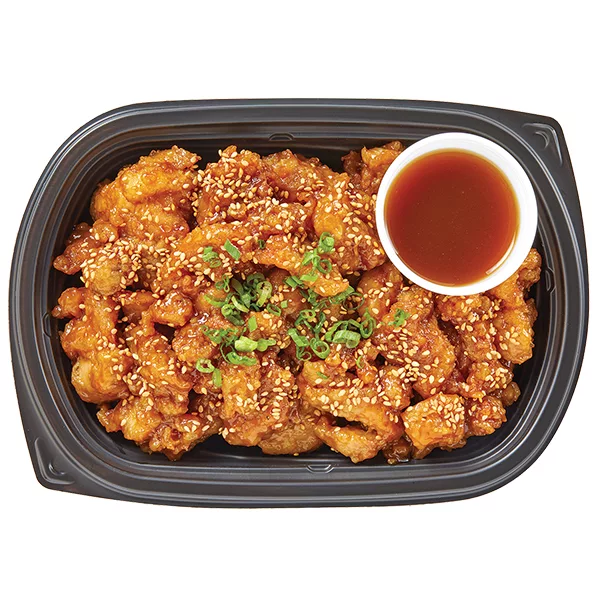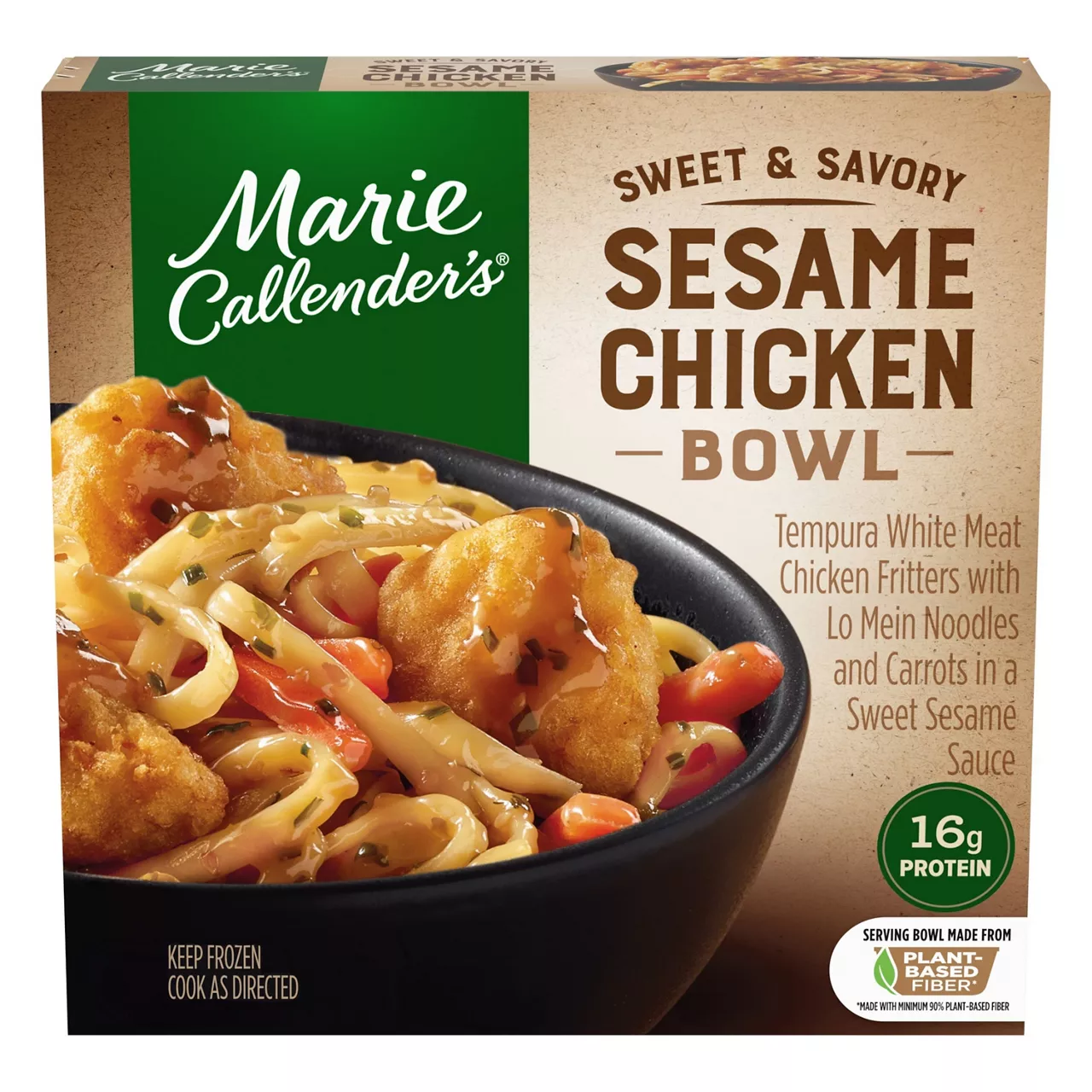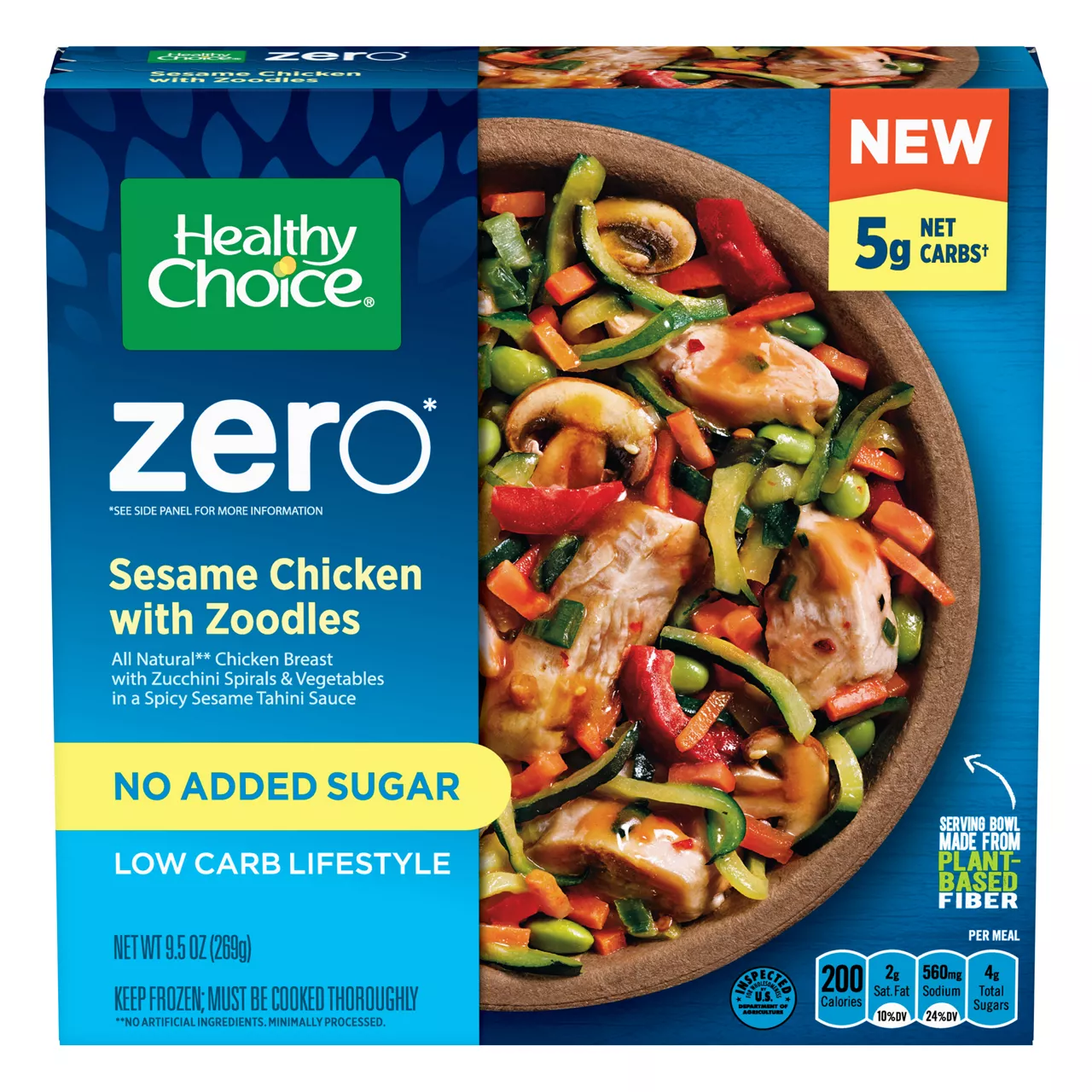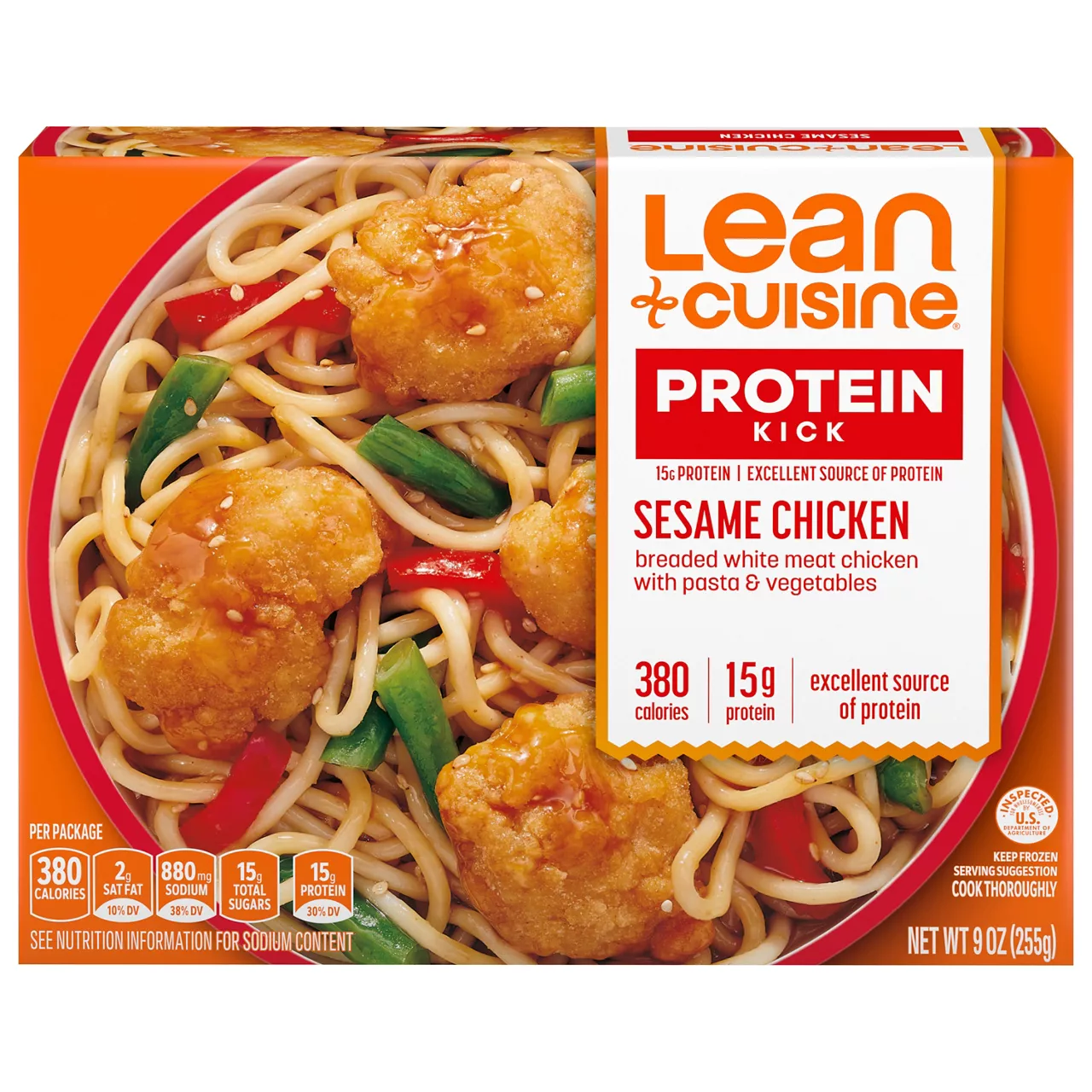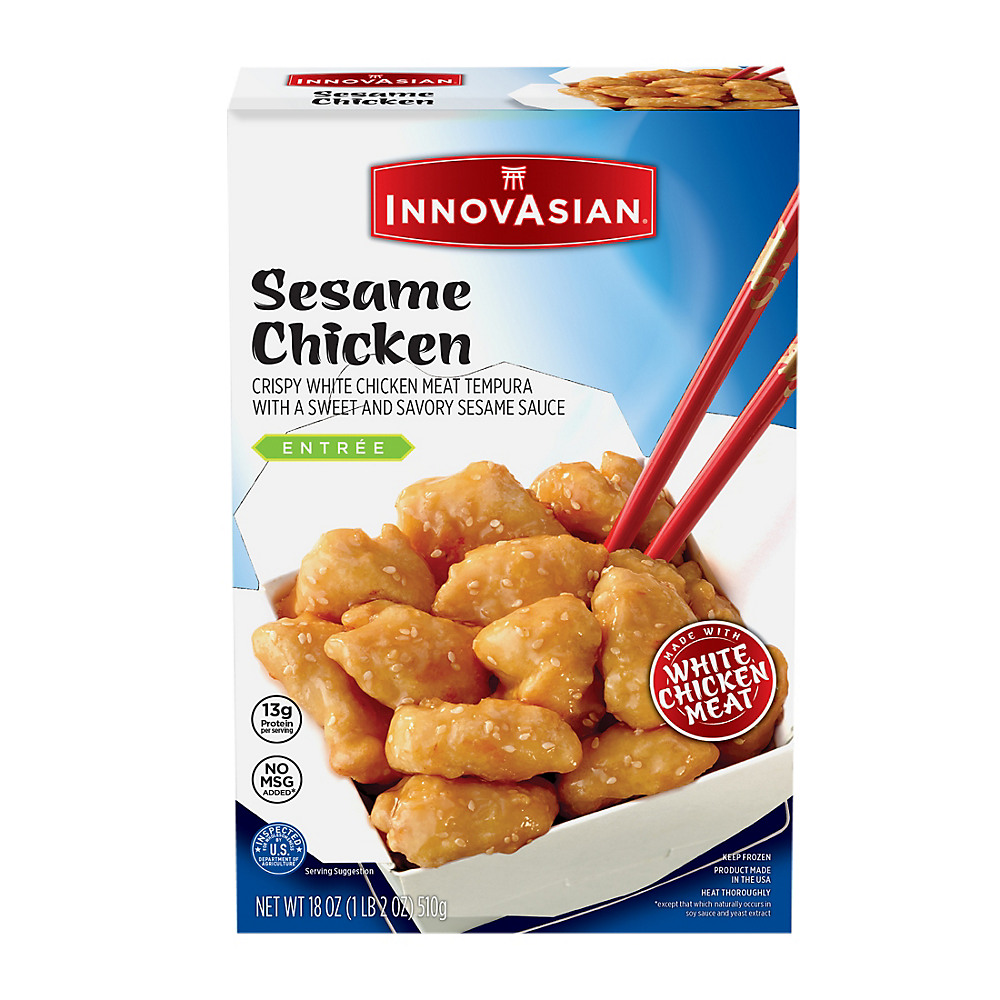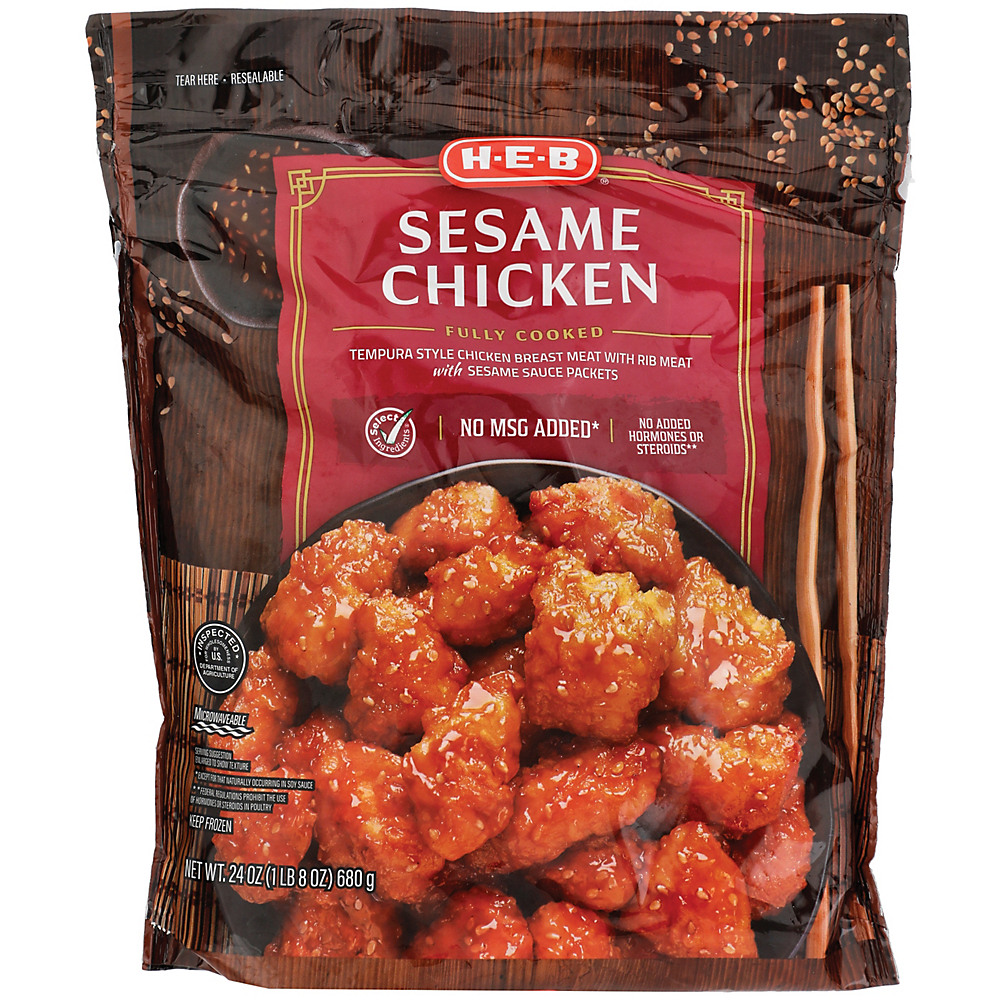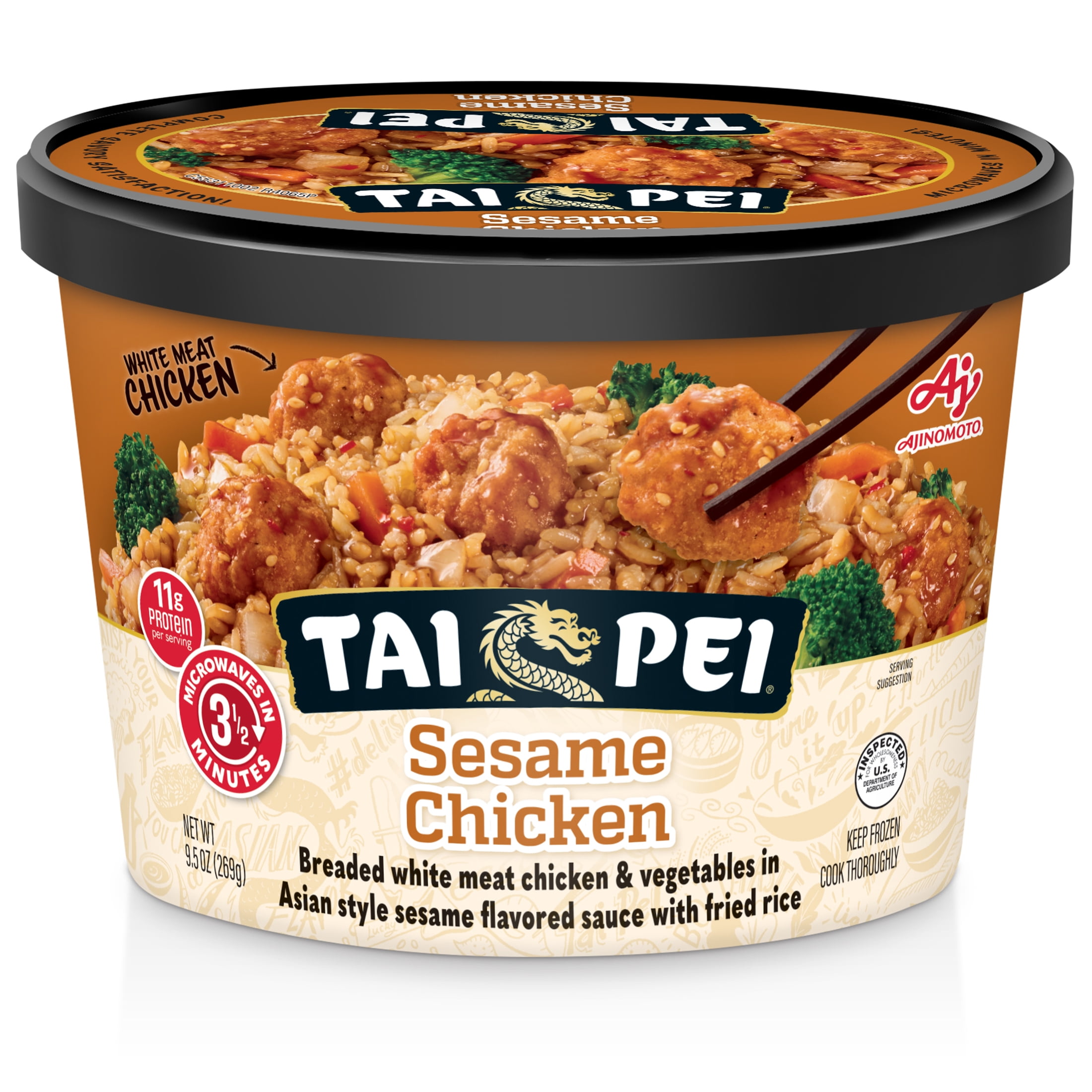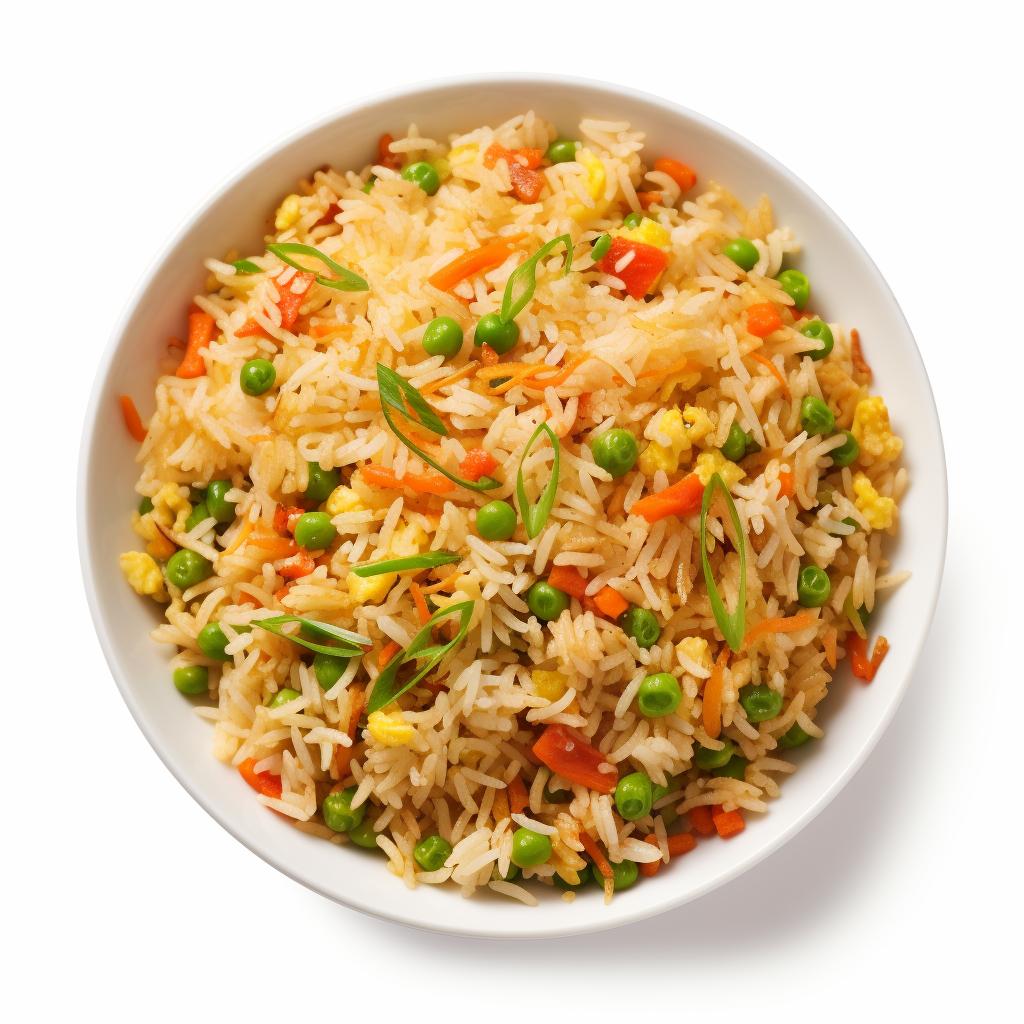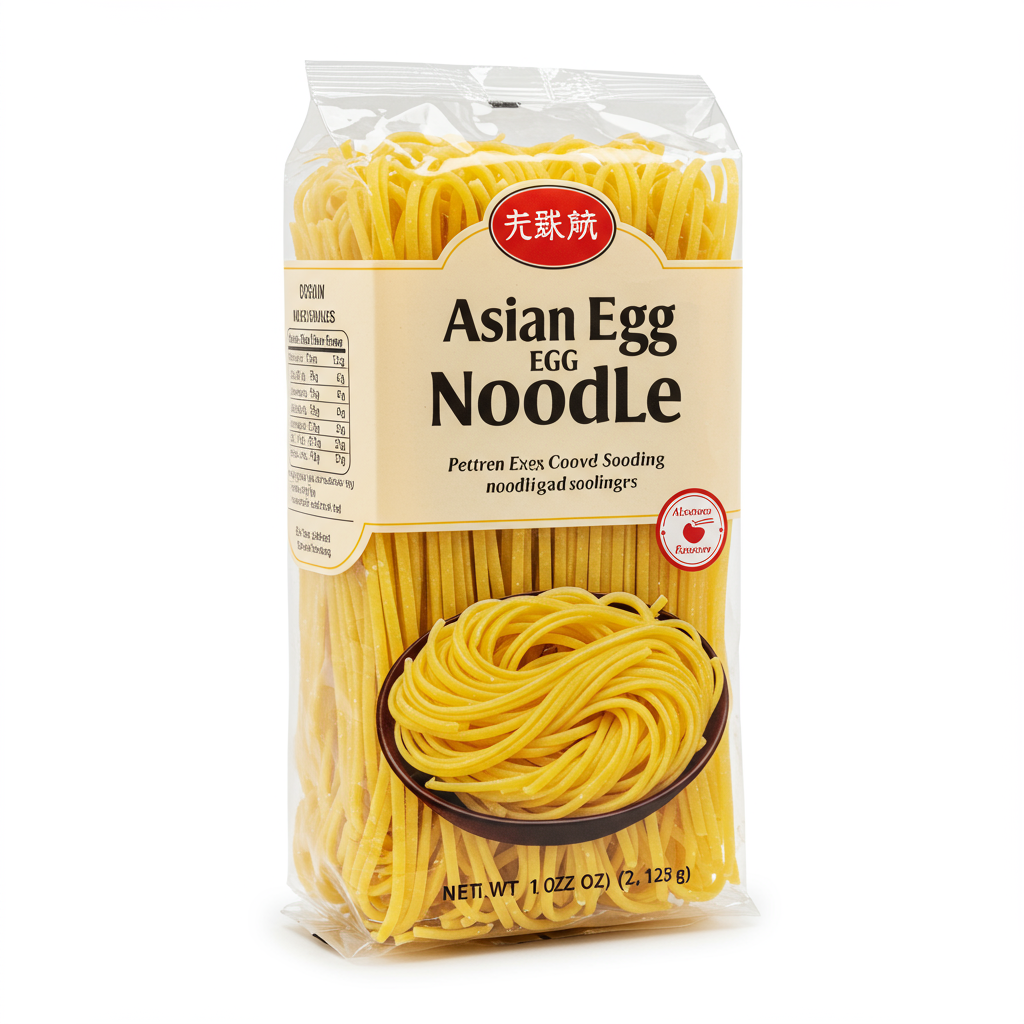Sesame Chicken
Sesame Chicken is an irresistibly delicious dish that reigns from Chinese cuisine, loved for its crunchy, yet tender chicken pieces bathed in a savory and subtly sweet glaze. It is often garnished with sesame seeds, adding another element of texture and a nutty flavor that pairs perfectly with the overall dish.
Perfect for a casual family meal or a special occasion, Sesame Chicken can be enjoyed on its own or paired with steamed rice or noodles. Furthermore, this dish is not just about taste. It also packs a generous amount of protein, making it a healthier option for those conscious about their diet.
43%
CARBS
28%
FAT
28%
PROTEIN
Featured Articles
117 Sesame Chicken Products
Wegmans Sesame Chicken Breast With Vegetable Lo Mein Asian Bowl
Wegmans Sesame Chicken, FAMILY PACK
Marie Callender's Sweet and Savory Sesame Chicken Bowl, Frozen Meal
Sesame Chicken With Zoodles Chicken Breast With Zucchini Spirals & Vegetables In A Spicy Sesame Tahini Sauce Zero Bowls
Lean Cuisine Protein Kick Sesame Chicken
Healthy Choice Cafe Steamers Sweet Sesame Chicken
P.F. Chang's Home Menu Crispy Sesame Chicken, Frozen Food
InnovAsian Cuisine Sesame Chicken
H-E-B Frozen Fully Cooked Sesame Chicken
Tai Pei Sesame Chicken
40 Recipes for Sesame Chicken
3
Garlic-Infused Honey Sesame Chicken with Broccoli
3
Golden Honey Sesame Chicken
2
Zesty Orange Sesame Chicken Delight
6
Honey Sesame-Garlic Chicken Thighs
4
Savory Honey Sesame Chicken & Veggie Bowls
2
Jalapeno Sesame Chicken Saute
3
Sesame Chicken Wontons in Flavorful Broth with Garlic Crunch
1
Glazed Maple Sesame Chicken Thighs
Sesame Chicken Is Frequently Used With
Sesame Chicken FAQ
What is Sesame Chicken?
What ingredients do I need to make Sesame Chicken?
Can I use a different type of meat?
Can I make Sesame Chicken without frying the chicken?
How can I prevent the chicken from becoming soggy?
Can I make the sauce ahead of time?
How should I store leftover Sesame Chicken?
What can I serve with Sesame Chicken?
Expiration & Storage Tips
When does Sesame Chicken expire?
In the fridge, leftover Sesame Chicken can safely be stored for up to four days. If you'd like to extend its shelf life, freezing is a good option—Sesame Chicken can be frozen for up to four months. The quality of the chicken may degrade a bit over time, but it will remain safe to eat. Once thawed in the fridge, you should consume it within 24 hours and try not to refreeze it.
How do you tell if Sesame Chicken is bad?
If your Sesame Chicken has changed in color, texture, or smell, it's a good sign it's gone bad. The chicken might look grayer or more dull than usual. Its texture might become overly slimy or sticky, and the smell might be unusually strong or sour. Remember, if you're in doubt, it's better to be safe and toss it out.
Tips for storing Sesame Chicken to extend shelf life
• Use an airtight container for storing Sesame Chicken in the fridge, this keeps the moisture in and other smells out.
• Try to refrigerate it within two hours of cooking to slow bacteria growth. The faster you cool it, the better it taste when reheated.
• If freezing, consider portioning the chicken into meal-sized quantities before freezing. This way, you can defrost only what you need without wasting the rest.
• To defrost, transfer the frozen chicken to the refrigerator, ideally overnight.
• When reheating, ensure the chicken reaches 165°F (74°C) to kill any bacteria.
Health Info
Macros
48g
CARBS
9g
FAT
15g
PROTEIN
Allowed on these diets
HIGH CALCIUM
LACTOSE FREE
Contains these allergens
SOYBEANS
WHEAT



